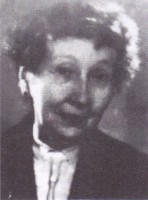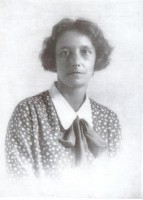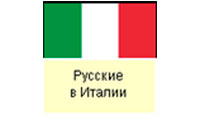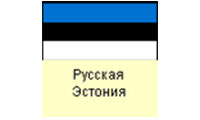Vladimir Antipov
Vladimir Antipov (12th of March 1862, Governorate of Livоnia, Russian Empire – 1925) – a major general of Russian imperial army, under the Provisional Government was promoted to the rank of lieutenant general.
An excerpt from the article by Andrei Marynyak, “General Vladimir Antipov: In the Service of Russia”.
The Legacy of the Russian–Brazilian Psychologist Elena Antipova (1892–1974) in Science, Education, and Human Rights in Latin America, Europe, and Russia, Moscow, 2012, pp. 86–97).
Vladimir Antipov was born into a family of hereditary honorary citizens. Upon completing the Riga Alexander Gymnasium, he chose a military career. After successfully passing his entrance examinations, on September 1, 1880, he entered the 2nd Constantine Military School in St. Petersburg.
The years Antipov spent at the Constantine Military School—located on Zabalansky Prospekt in the imperial capital—were far from calm for either St. Petersburg or Russia. On March 1, 1881, Emperor Alexander II, the “Tsar-Liberator,” was assassinated by members of the People’s Will organization. His son, Alexander III, ascended the throne, ushering in an era that historians—perhaps not entirely justly—have labeled the period of “counter-reforms.”
Antipov graduated from the Military School on August 7, 1882, with the rank of podporuchik (second lieutenant) and was assigned to the 101st Perm Infantry Regiment of the 26th Infantry Division, stationed in Grodno (Vilna Military District).
The time of Antipov’s regimental service coincided with a period of rapid cultural, educational, and professional growth within the Russian officer corps. The regimental chronicle notes, for example, that in 1867 only five of the fifty-eight officers had completed a cadet or military school, while by 1896 the situation had changed dramatically: two had graduated from the General Staff Academy, two were still enrolled there—one of them being Staff Captain Vladimir Antipov—thirty-five had finished military schools, and forty-eight had completed cadet colleges. The progress in the regiment’s educational level was evident.
Antipov’s promotions followed a steady and unbroken path: poruchik (lieutenant) on May 15, 1887 (seniority dated August 7 of the same year), and staff captain on March 31, 1891. On August 18, 1891, he was confirmed as company commander.
Around the turn of the 1880s and 1890s, he married “the daughter of Colonel Stoyanov, Sofia.” Their first child, Elena, was born on March 25, 1892; two more daughters followed—Zinaida (April 28, 1895) and Tatyana (October 12, 1904).
On February 20, 1894, Antipov received his first decoration—the Order of St. Stanislaus, 3rd Class. That same year, he decided to take a bold step and change the course of his career by attempting to enter the prestigious Nicholas General Staff Academy. Admission to the Academy from the post of company commander, already holding the rank of staff captain for several years, was a daring and unusual decision. Most candidates applied much earlier, after completing the mandatory three years of line service; few dared to do so in their second decade of duty.
On July 3, 1894, Antipov was sent to the headquarters of the Vilna Military District “for preliminary testing for admission to the Nicholas Academy of the General Staff.” Having passed these trials, on August 20, 1894, he proceeded to St. Petersburg for the official entrance examinations. Again successful, he was admitted on October 9, 1894, as a full-time student of the Academy.
Antipov successfully passed all examinations and on October 8, 1896, was formally enrolled in the Academy. After completing the two main courses, he advanced to the additional (graduation) course on October 20, 1898. By then he had been promoted to captain (April 15, 1898, with seniority from March 15). He belonged to the last class taught under the renowned Russian military theorist and historian General Heinrich Leer, head of the Academy from 1889 to 1898.
On June 5, 1899, Antipov completed the additional course with distinction and was attached to the General Staff. His perseverance was rewarded: Captain Vladimir Antipov of the General Staff was assigned to the St. Petersburg Military District, where he would serve for the next fifteen years.
On July 23, 1900, he was transferred to the General Staff and appointed Senior Adjutant of the Headquarters of the 1st Guards Cavalry Division—an unusual appointment, given that he had never served in cavalry or artillery. The division was one of the most aristocratic in the Russian army, and the role demanded both tactical expertise and practical horsemanship. As Senior Adjutant, Antipov was responsible for operational planning, mobilization issues, and the organization of the division’s combat training.
Only a few months later, on November 5, 1900, he was appointed ober-officer for special assignments at the Headquarters of the Guards Corps. On November 28, he was dispatched to Germany for an eight-month study mission. Upon his return in July 1901, he was promoted to Senior Adjutant of the Guards Corps Headquarters.
On July 17, 1902, he was promoted to lieutenant colonel and became Senior Adjutant of the Headquarters of the Guards Troops and the St. Petersburg Military District. On April 2, 1906, he was promoted to colonel “for distinguished service.”
On July 6, 1907, Colonel of the General Staff Vladimir Antipov was appointed head of the St. Petersburg Infantry Cadet School. His effective leadership there earned him further recognition: on December 6, 1910, he was promoted to major general “for distinction,” and on December 6, 1912, awarded the Order of St. Vladimir, 3rd Class.
At the outbreak of World War I, General Antipov was serving as head of the Vladimir Military School. For his success in training officers, he received the Order of St. Stanislaus, 1st Class (March 22, 1915).
Soon after reorganizing the school for wartime needs, he joined the front himself. On January 25, 1915, he was given command of a brigade of the 63rd Infantry Division, and later that spring—of the entire division. During the great Austro-German offensive of April 1915 (the “Gorlice–Tarnów breakthrough”), his troops faced overwhelming enemy superiority in artillery and manpower. Despite fierce resistance, the Russian front collapsed, marking the beginning of the Great Retreat.
On May 18, 1915, Antipov was appointed Chief of Staff of the Guards Corps, comprising nearly all the elite Guards units of the empire. His task was to rebuild these formations after their heavy losses and prepare them for the 1916 campaign. Later that year, with the creation of the 2nd Guards Corps, he became its Chief of Staff (December 21, 1915), serving in this position until July 6, 1916.
On that date he was appointed commander of the 36th Infantry Division, part of the 13th Army Corps, and promoted to lieutenant general on April 29, 1917, after assuming command of the 19th Army Corps earlier that month.
The subsequent fate of Vladimir Antipov remains unknown. In any case, his life stands as the story of an exceptional officer whose persistence and service brought him to the highest command ranks of the Imperial Russian Army.
Sources of information:
Некрополь российского научного зарубежья – Е.В.Антипова
В 2014 году Дом русского зарубежья им. Александра Соженицына издал сборник материалов Международного научного коллоквиума (18-20 июня 2012 г.). На нашем сайте, с согласия авторов, размещены три статьи, связанные с историей рода Антиповых – одного из старейших русских родов Лифляндии
Андрей Марыняк (Россия). Генерал Владимир Антипов: на службе России
Светлана Ковальчук. Лифляндские корни Е.В. Антиповой: опыт реконструкции фамильного древа
Наталья Масоликова (Россия). Русские годы психолога Елены Антиповой (1892–1974)
The text was supplemented by Tatiana Masolova.


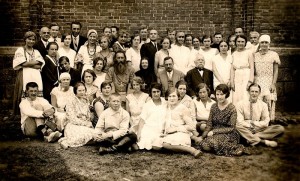
.jpg)


